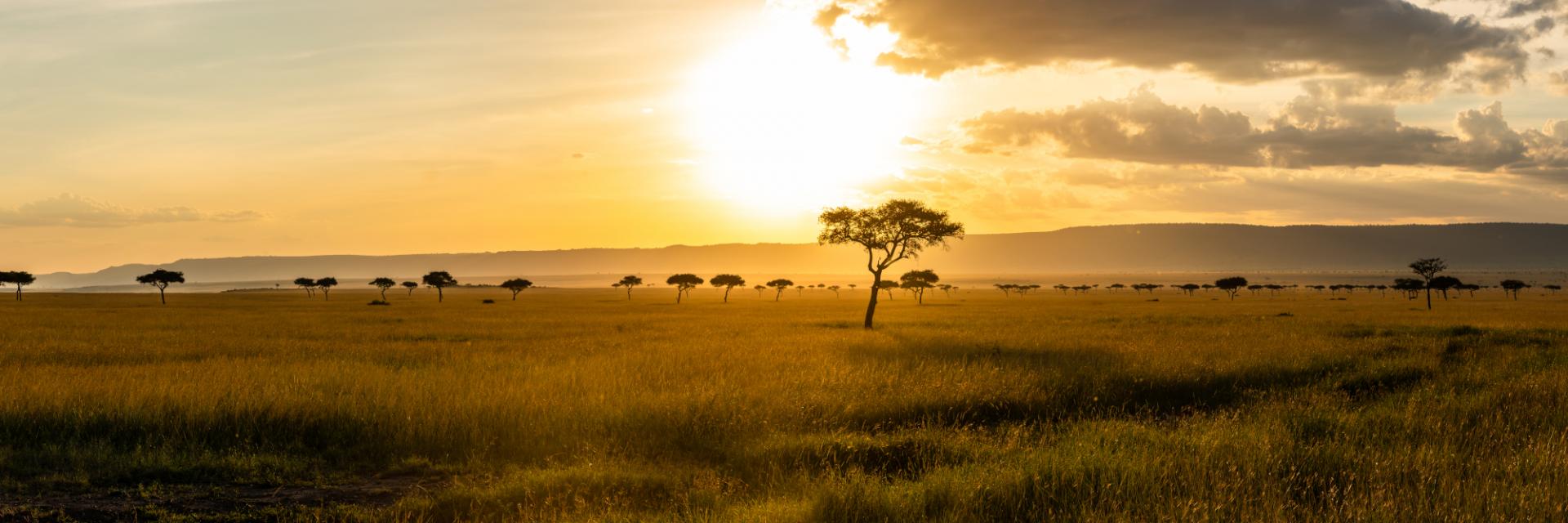Montreal, Canada, 15 December 2022 (ECA) - The United Nations Regional Economic Commissions (RECs) say that securing an equitable framework for biodiversity is humanity’s ticket to sustainable development.
The world is at crossroads as global leaders battle to forge a new deal to protect biodiversity at the Convention for Biodiversity (CBD) COP15, underway in Montreal, Canada.
Speaking during a Joint high-level event of the United Nations Regional Commissions, leaders underscored the urgency to halt biodiversity loss, reiterating that biodiversity protection was inextricably tied to the Sustainable Development Goals (SDGs).
“More than 62 percent of the African population depend directly on ecosystem services for food, water, energy, health, and livelihood needs,” the Economic Commission for Africa’s Acting Executive Secretary, Antonio Pedro, explained during a panel discussion moderated by international journalist, Femi Oke.
Mr. Pedro said it was important to incorporate sustainable use of natural assets into national strategies and to reduce biodiversity loss. For example, tourism in Africa relies largely on ecosystems. In 2019, tourism accounted for about 7% of Africa's GDP and contributed $169 billion to the economy.
He pointed out that it was critical to ensure that tourism becomes part of Africa’s efforts to achieve structural transformation and the SDGs. He added that a clear value proposition of biodiversity conservation efforts was key for all stakeholders, including local communities.
“The structural transformation of our economies is critical,” said Mr. Pedro, noting that the role of biodiversity has been recognized in fostering Africa’s transformation by African Union Heads of State at the latest African Union Summit on Industrialization and Economic Diversification.
Despite Africa being one of the biodiversity rich continents, it has been faced with major challenges. Africa would be hit particularly hard by a collapse in ecosystem services. Estimates are that the region’s real GDP would contract by 7.9 percent annually by 2030 or about $358 billion.
Africa contains a quarter of global diversity and one fifth of known species of mammals, birds, and plants. Rainforests support the largest proportion of biodiversity. The Congo Basin is the second largest rainforest in the globe accounting for 10 percent of the world’s biodiversity
The forests of Africa are crucial for slowing down climate change globally. Rainforests alone hold 90% of Africa’s carbon stored in the continent’s terrestrial ecosystems. The Congo Basin Forest stores more than 60 billion metric tons of carbon while its peatlands contain 30 billion metric tons of carbon.
Furthermore, the triple crisis of COVID 19, Ukraine war and climate change has revealed that Africa does not have the financial resources to address and reduce vulnerability. Therefore, forward looking strategies are needed to increase the fiscal space through options such as carbon credits facilities and innovative financing.
Mr. Pedro lamented that most African countries do not adequately map and evaluate their natural resources, including forests and the ecosystem services they provide. He pointed to current underdevelopment of Natural Capital Accounting (NCA) on the continent, which lead to policymakers not having the necessary information on the economic and non-economic value of biodiversity.
“This obstructs the formulation of development policies and interventions in areas such as the environment, forest management, or the green and blue economy,” Mr. Pedro said, commenting that the lack of financing for nature and biodiversity positive action was another challenge.
To counteract the challenges, the ECA has been supporting national statistical systems in developing their capacity to better account for the value of natural capital in national accounts.
In addition, the ECA will work with the Secretariat of the Convention on Biological Diversity, African Union Commission, and other partners to support member States in refining their National Biodiversity Strategies and Actions Plans in line with the Post-2020 Global Biodiversity Framework and integrate them into development frameworks.
In her capacity as the 2022 coordinator of the United Nations Regional Commissions (RECs),
Executive Secretary of the Economic Commission for Europe (ECE), Olga Algayerova, presented a joint RECs statement and a vision on how RECs would support member countries in the implementation of the post-2020 Biodiversity Framework. She said that RECs will strengthen the capacity of UN member states to mobilize investment and promote knowledge sharing and exchange on biodiversity.
“Biodiversity is not an end in itself but we are obliged to protect it and want to sustain our lives and those of our children and future dependents,” Ms. Algayerova said, emphasizing that UN bodies had joined hands to deliver a common approach to integrating biodiversity.
“The draft post 2020 framework needs to become operational without any delay and parties have worked to find common ground…However climate and future generations require us to act now…it is now or never, '' she said.
The Executive Secretary of the Economic and Social Commission for Western Asia, Rola Dashti said biodiversity was in decline exacerbated by climate change. She called for a coordinated approach in protecting biodiversity.
Issued by:
Communications Section
Economic Commission for Africa
PO Box 3001
Addis Ababa
Ethiopia
Tel: +251 11 551 5826
E-mail: eca-info@un.org

